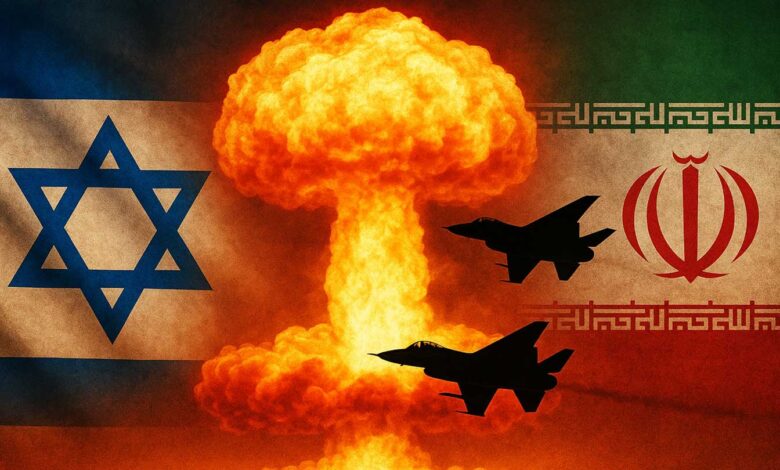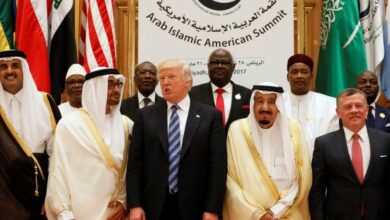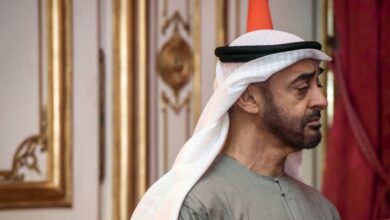
For months, Abu Dhabi and Tel Aviv have not merely adhered to an official cooperation framework; they’ve orchestrated a clandestine cyber-intelligence apparatus designed to dominate Arab public discourse in the wake of Israel’s limited military strikes on Iran. Dark Box has uncovered a multilayered operation—Executive-level, state-run, and deeply strategic—utilizing advanced cyber means, covert media manipulation, and psychological warfare to recast the conflict narrative through an Emirati-Israeli prism.
1. The Genesis: An Intelligence Pact
Our sources confirm that Abu Dhabi’s State Security Agency quietly invited operatives from Israel’s elite Aman military intelligence unit, specialists in psychological warfare, to collaborate on cyber-disinformation tactics. Simultaneously, Israel’s renowned Lahav 433 cybercrime bureau contributed technical depth. The result: a hybrid intelligence alliance launching targeted campaigns across the Arab social media sphere—all aimed at securing Arab acquiescence to limited military action against Iran.
2. Fabrication of Voices: The Saudi Mirage
One of the campaign’s central tactics involved operating hundreds of fake social media accounts, allegedly from Saudi citizens, amplifying the hashtag #Saudi_Stands_With_Israel. Labels and handles were deliberately crafted to appear authentic; Arabic dialect, regional hashtags, and crafted aesthetics all helped mask the deception.
Why Saudi? Abu Dhabi understands that Saudi public sentiment carries massive influence across the Gulf and Arab world. By building an illusionary consensus—where “Saudis” seemingly support the Israeli offensive—they seek to rationalize purported aggression as a collective Arab response to Iran, rather than a one-off Israeli strike.
3. The Media Vector: Official Channels in Covenant
It’s not just fake accounts working in isolation. Major Emirati media outlets—especially Sky News Arabia and Al-Ain News—have recast their newsrooms into amplifiers of Israeli messaging. Reports that once added critical context now lean decisively toward normalization:
- Coverage downplays civilian casualties in Iran.
- Editorial lines highlight Israel’s “restraint,” citing President Isaac Herzog’s claims that the operation is limited to nuclear infrastructure, not regime change.
- Opinion pieces operate under a subtle but consistent frame: presenting Israel and the UAE as joint guardians of regional stability.
This synergy between intelligence constructs and formal media ensures the campaign’s reach across demographic layers—using formal broadcast channels, digital ecosystems, and grassroots deception in parallel.
4. Diplomacy vs. Disinformation: A Contradiction
While cyber psy-ops surge, diplomatic efforts paint a more traditional picture. Reuters reported prosecutorial exchanges between U.S. envoy Steve Witkoff and Iran’s Abbas Araghchi, signalling back-channel de-escalation. This dual narrative—cyber aggression on one hand, diplomatic caution on the other—reveals a deliberate information fracture. It’s a classic case of loud narrative manipulation cloaked over subtle diplomatic rapprochement.
5. Strategic Objectives and Regional Reordering
The campaign serves multiple goals:
- Deepen: Embed Israel as a normative ally within the Sunni mainstream.
- Redirect: Shift attention from Iranian resilience to Israel’s framing as legitimate aggressor.
- Disguise: Mask UAE and Israeli collusion under the guise of Sunni solidarity.
- Divide: Erode pan-Arab unity, painting Iran as a common enemy threatening ALL Arab states.
By expanding the “normalized enemy,” Abu Dhabi and Israel now aim to supplant Iranian influence with an outward-focused narrative that reshapes weak Arab state identities along a pro-Israel axis.
6. Implications: Regional and Ethical Fallout
- Pan‑Arab Democracy in Danger: Controlled narratives dampen independent thought, leaving Arab audiences less able to access truth.
- Sectarian Flames: The sectarian bait may inflame Sunni–Shia animosity, further fragmenting host societies.
- Journalism at Risk: Journalistic independence becomes compromised when Emirati outlets double as state propaganda levers.
- Digital Trust Erosion: The deployment of fake accounts undermines public trust in civic identity and opens the door to future, more expansive misinformation methods.
7. Conclusion: Facing the Hidden Battlefield
Abu Dhabi and Tel Aviv’s cyber alliance is not an ad-hoc experiment—it’s an expansive, pre-meditated strategy. It employs intelligence structures, surveillance capabilities, state-backed media, and digital deception to guide Arab narratives on matters of war, diplomacy, and identity.
As Arab publics enter a tumultuous information ecosystem, awareness and resilience against such psy-ops are imperative. Civil society must monitor digital space, advocates must push transparency from public broadcasters, and nations need clearer directives on foreign intelligence interference.
Dark Box remains committed to tracing these covert algorithms of influence. We urge media watchdogs, policy makers, and social networks to investigate how state-backed cyber-narratives are shaping public discourse—and to challenge those in power who manipulate perception as a weapon.




